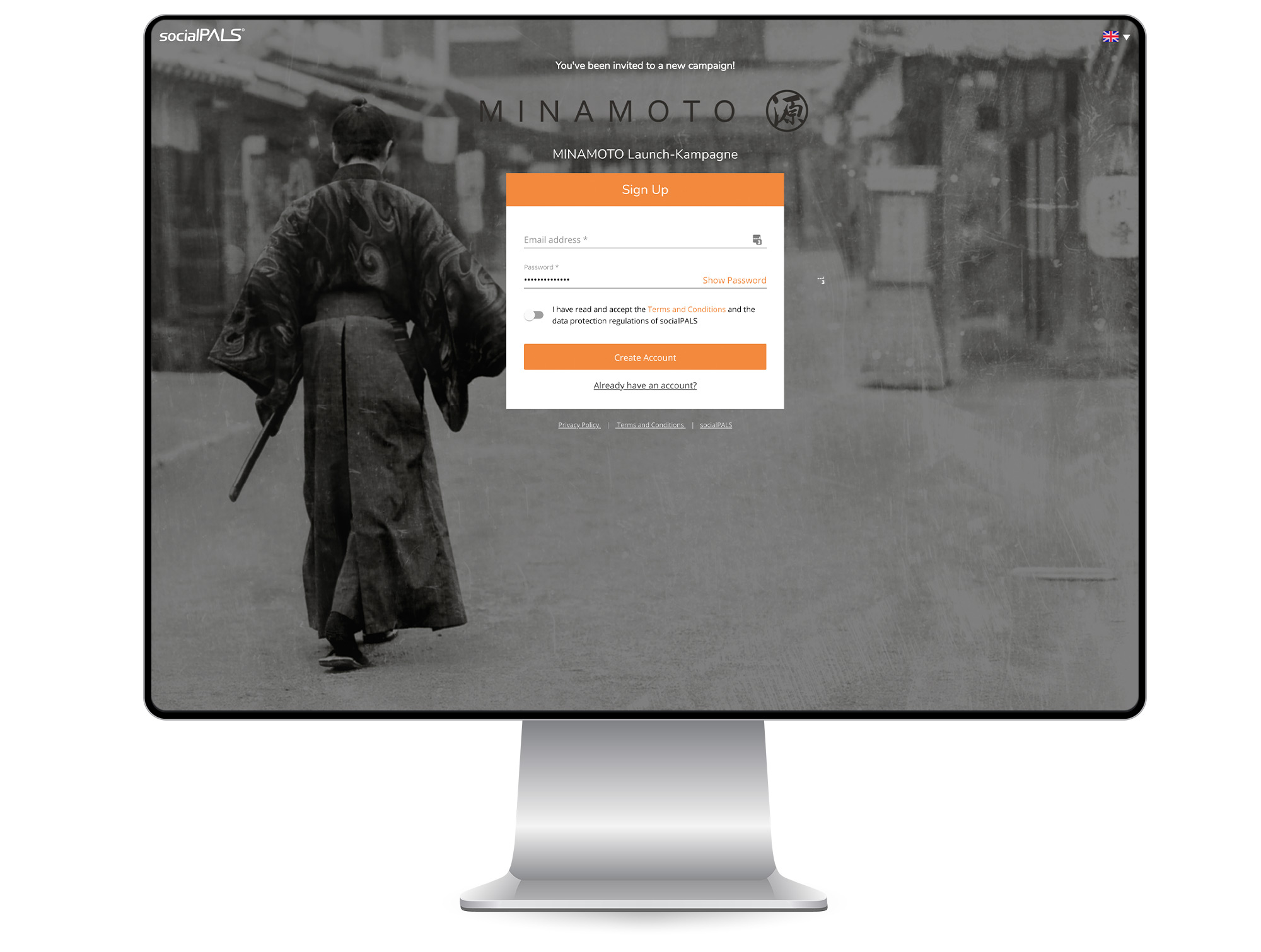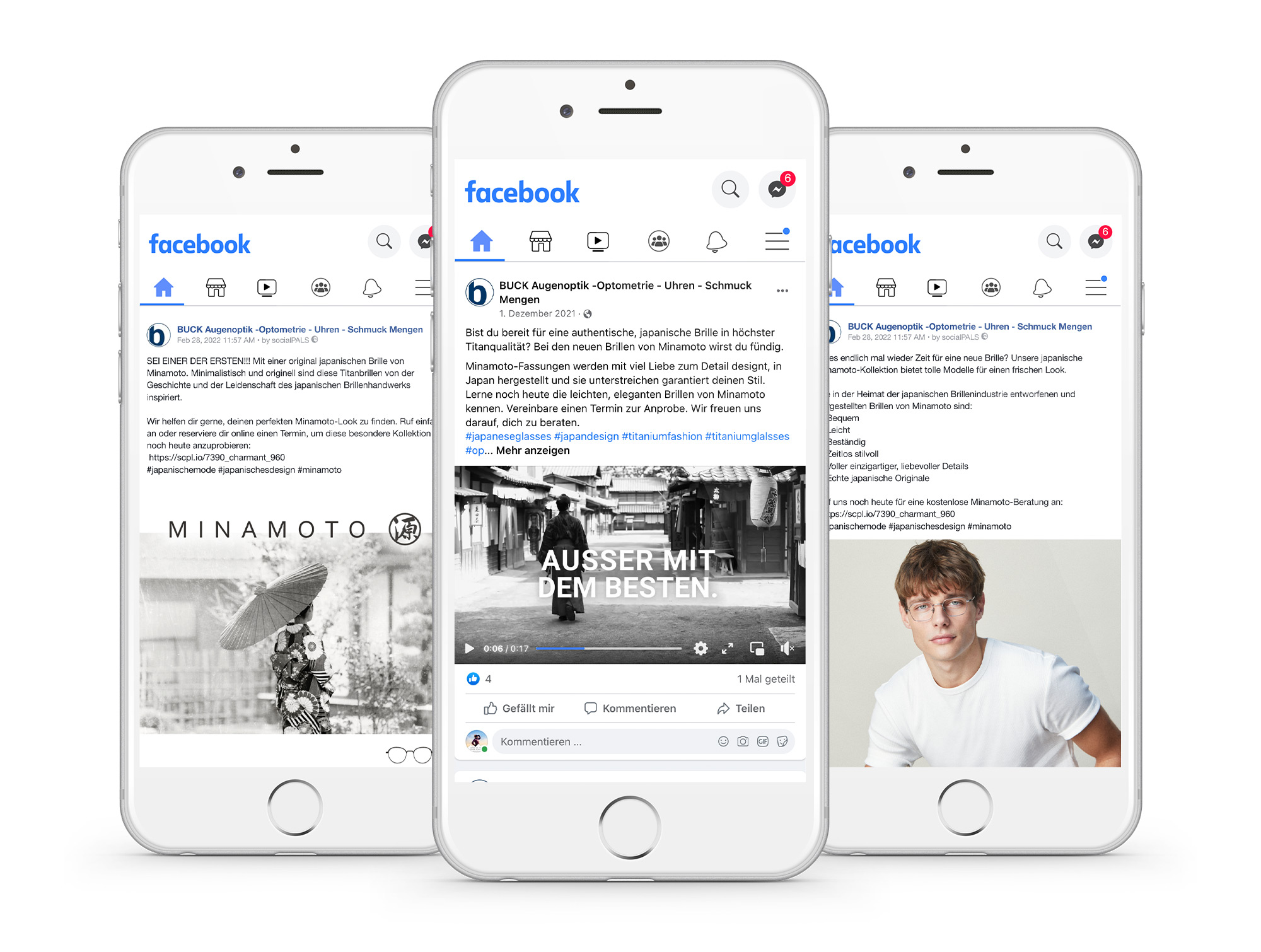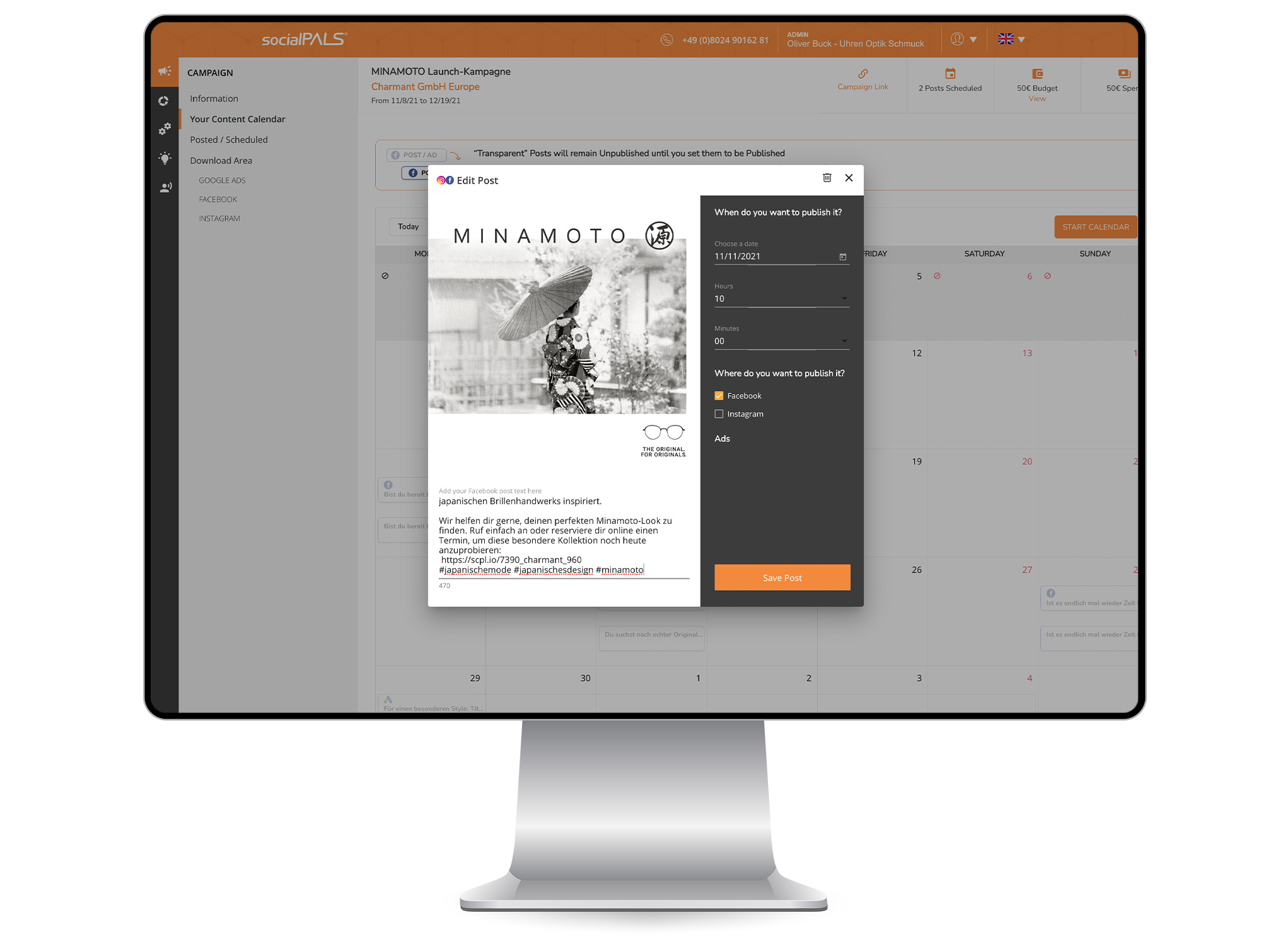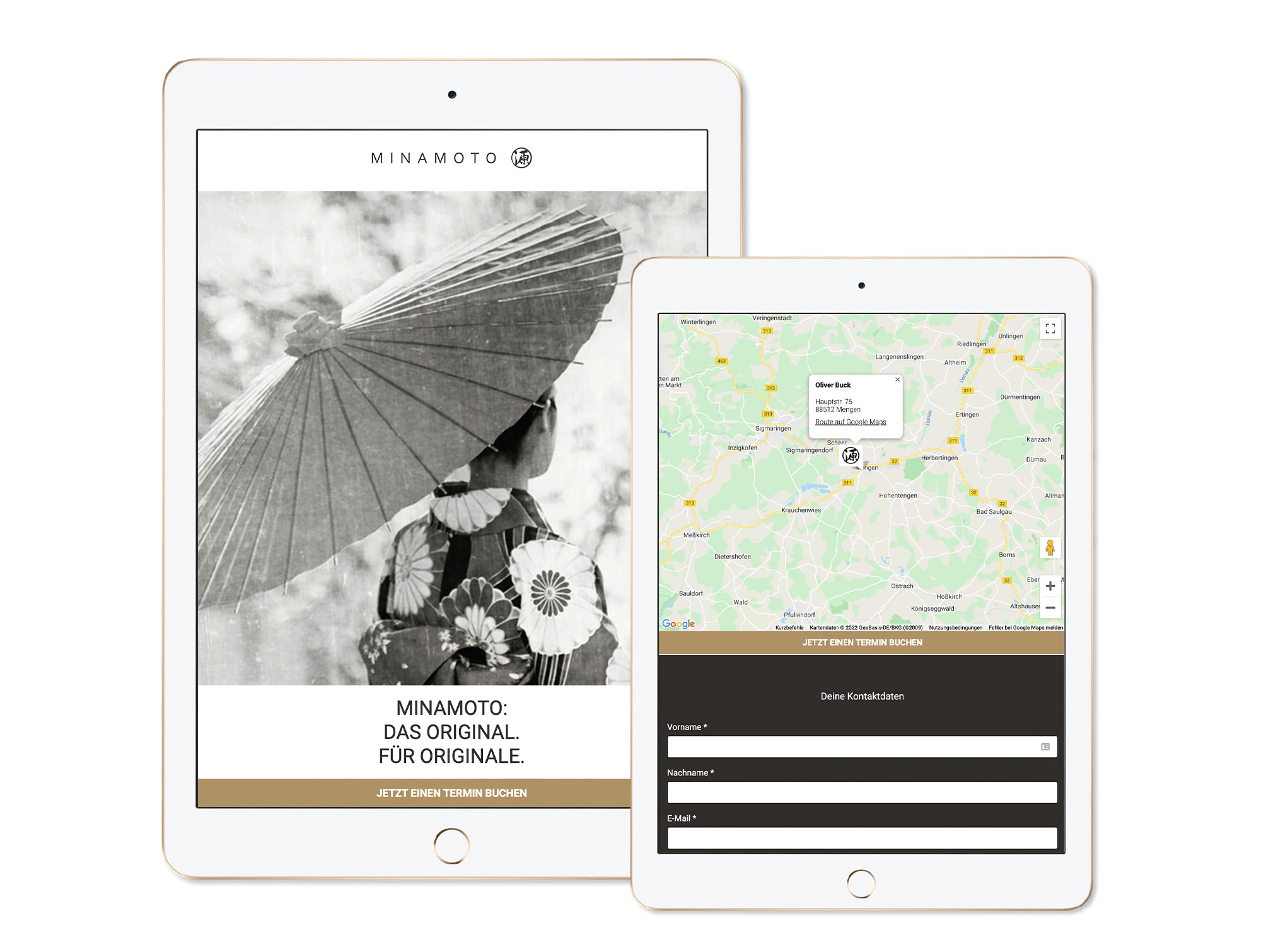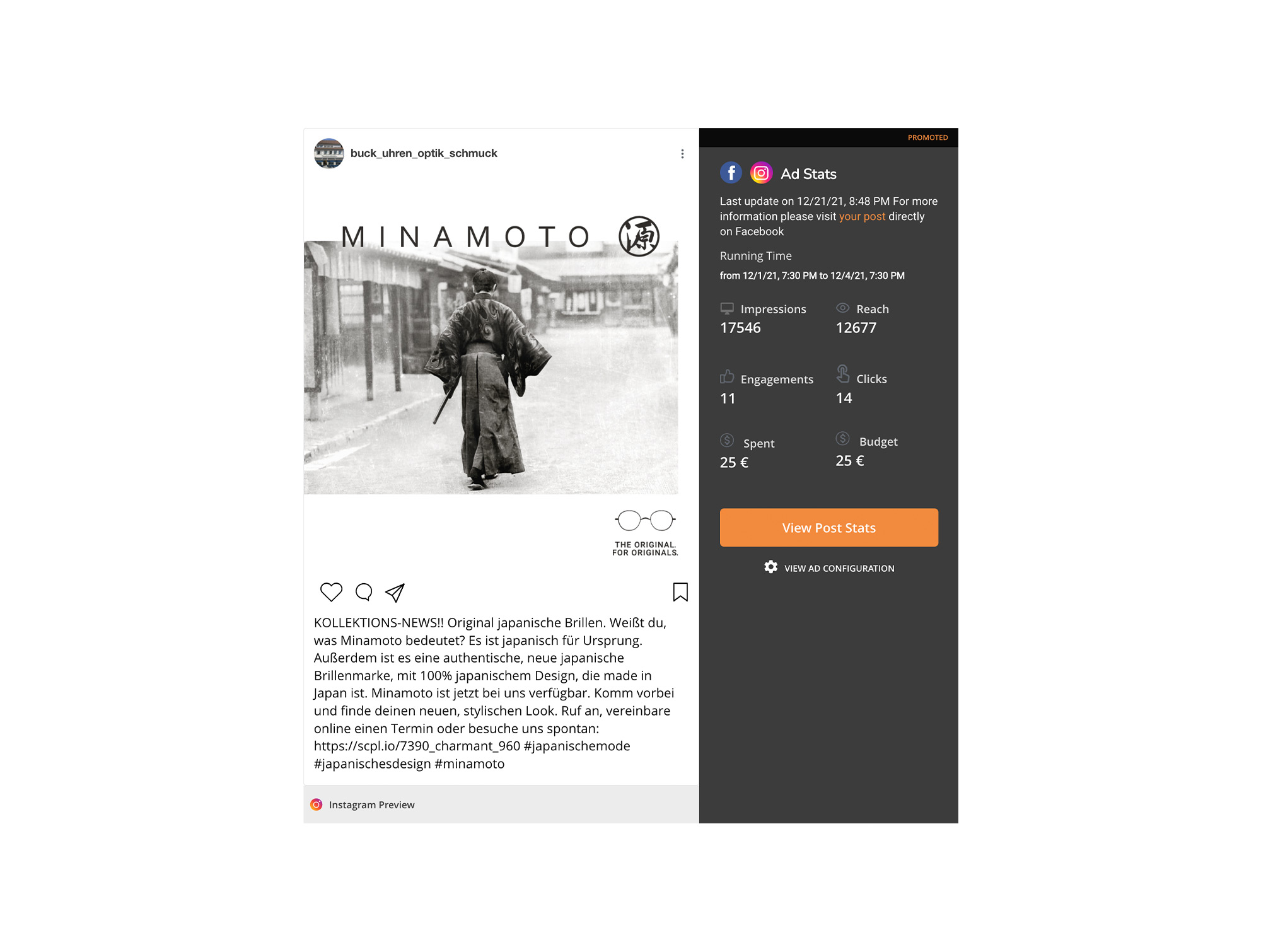Opticians were fortunate during the Corona lockdowns in that they are considered system-relevant infrastructure and were therefore not affected by closures. Nevertheless, a professional online presence is a necessary business card in today’s market – even for this industry. Julia Berger was looking for a central solution to provide her retail partners with digital campaigns and support them in their sales. socialPALS offered the right solution!

Julia Berger
Senior Marketing Manager | CHARMANT Europe
Julia, please tell us a little bit about yourself and your role at CHARMANT!
I am a senior marketing manager responsible for marketing in various European markets, including the DACH market, Scandinavia, the UK, the Netherlands, and Belgium. We develop campaigns as a team that we offer to our optician retail partners via our external sales force.
You use socialPALS to continuously supply your retail partners with high-quality campaign content. Why did you decide to permanently integrate this form of automated retail marketing into your communication concept? What do you see as the advantages of a centrally controlled platform?
Our industry is not yet as far advanced in terms of digitalization. For this reason, we wish to support our retail partners in online marketing, among other things, since they are naturally not experts in this segment. With automated solutions such as socialPALS, it is possible for us to provide professional content and advertisements without the opticians having to do a lot of work or requiring any expertise.
What challenges do you currently see in the industry - both for CHARMANT as a brand and for your retail partners? Have you been able to solve them with the help of socialPALS?
As I said, our industry is not yet as digitized as the fashion industry, for example. Some of our retail partners have yet to be convinced of the benefits of digital marketing. The challenge for us as a company is, on the one hand, to get our retail partners excited about online marketing. On the other hand, we need a central solution to make our campaigns available and access our retail partners. Otherwise, individual support would not be feasible or efficient for us in terms of workload. This is where socialPALS offers a suitable solution.
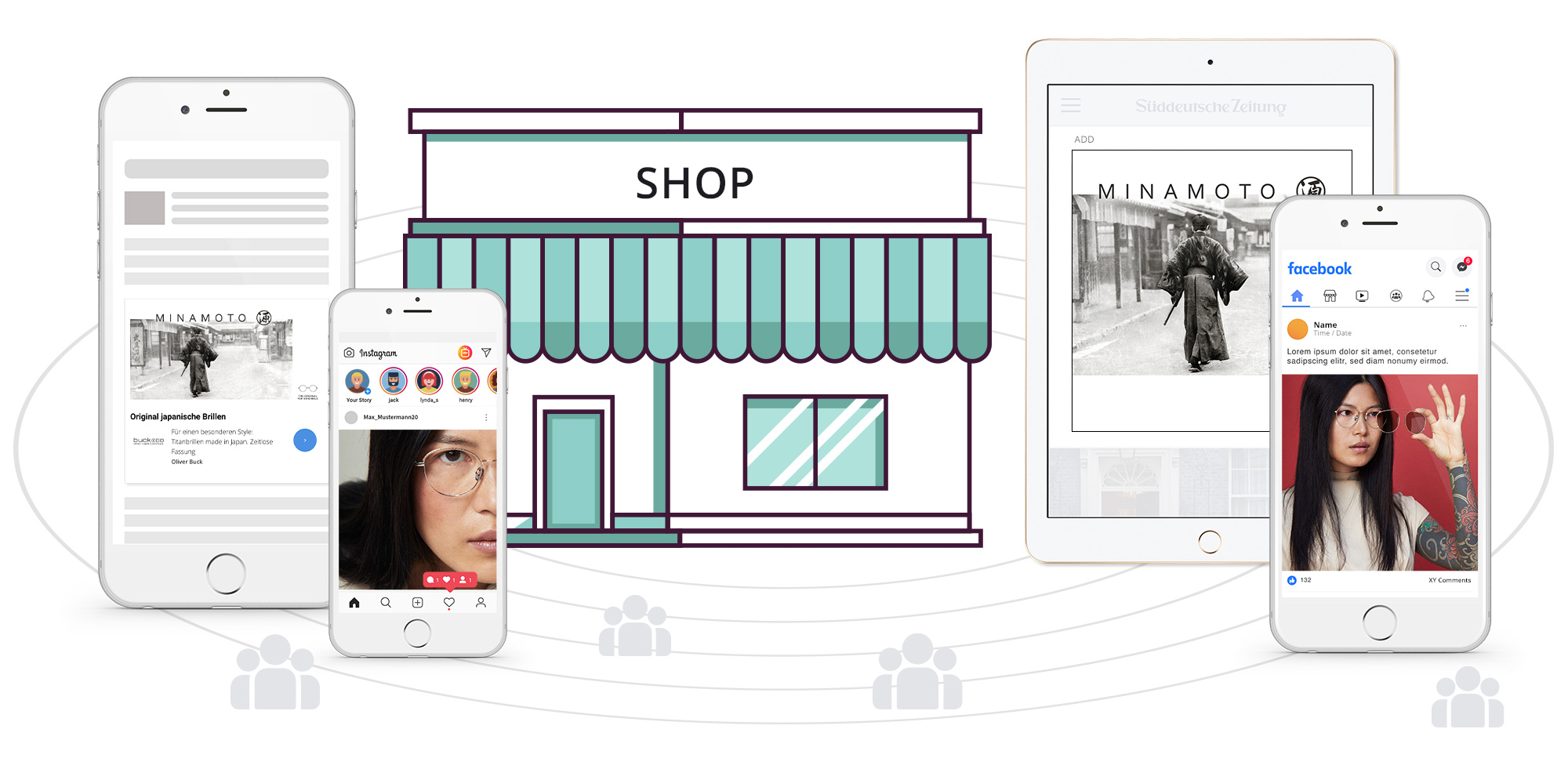
How high was the in-house marketing workload in order to implement the platform?
The time and effort required internally were not particularly great. It took us a while to overview all the functions, but even that is still within reasonable limits.
How difficult is it to motivate your retail partners to participate? Is the "online marketing" module accepted as an integration into the sales concept?
It does take some convincing because our retail partners don’t yet have much contact with this subject, and they first need to be made aware of the benefits of online marketing. For example, if there is no increase in the number of visitors to the store during the campaign period, this does not mean that the campaign is not working. It is essential to understand that increasing recognition, i.e., awareness and a professional online presence, is vital for every retailer. This is also a chance for great potential to positively stand out to consumers from large chain stores.
We have integrated socialPALS into our sales concept and put together an offer for our retail partners. This is also necessary since it is a significant investment on our part.
Participation in a socialPALS campaign and thus the playout of the turnkey content calendar is confirmed by each retail partner after one-time registration via 1-Click. Were there also retailers who took a closer look at the platform and e.g., planned (additional) postings or advertising budget themselves?
As a matter of fact, more retail partners are actively involved with the content calendar than we would have expected. Mainly, the timing of posts is changed, individual components of our content calendar are removed, and the ad budget is also rescheduled. As far as I know, no participant has booked an additional advertising budget.
Were the previous campaigns successful? Were you able to draw helpful learnings from them - for example, which channels/formats are best suited for the advertised products?
We had a successful campaign with Esprit in spring/summer. However, the campaigns we implemented in fall/winter couldn’t keep up with the numbers. We now have to see what the reason for this is. Does the sales force need to be trained again to explain the benefits better? Has the pandemic had an impact? These are the issues we need to analyze. In general, I can see that our customers prefer Google to display ads to social media activities.
Did the "Corona crisis" have a (lasting) impact on the industry, e.g., because trying on glasses in the local store was only possible to a limited extent at times? Did this also change the requirements for local marketing?
In my opinion, the Corona crisis should have shown every retail company that a professional digital presence is not a nice-to-have but a must-have. Opticians were at least fortunate because they are considered system-relevant infrastructure and were not affected by any closures. They quickly adapted to the new conditions and developed hygiene concepts that made it possible to sell eyewear. For example, there was a switch to an appointment business in many places. However, it is still unavoidable in most stores to fit the glasses on the nose. I can understand that since eyeglasses are more or less custom-made and cannot be compared to a T-shirt.
How do you see the future of stationary retail in the context of the market power of the big online players? Does the "optician around the corner" still have a chance if they invest in effective digital measures in good time, for example?
Online retailing still accounts for a relatively small share in our industry. To stay with the T-shirt example: If I know my dress size, I have a reasonably good chance that a T-shirt I order online will fit me. A face is so much more individual – it’s proportionally more challenging to pick out eyewear online. There are, of course, solutions for digital fitting, which we also use, but in my view, these are not yet fully developed.
The effort required for an online purchase is therefore much higher. You might as well go to your optician around the corner and benefit from personal advice. Nevertheless, stationary opticians should not rest on their laurels. Technology is evolving, and a digital presence is also a business card. A large proportion of consumers obtain information online before shopping in stores. A professional online presence is therefore essential.
What was your personal experience with socialPALS? Do you have any suggestions/criticisms?
The team of socialPALS is always amiable and helpful; they make sure there’s a solution for every issue.


